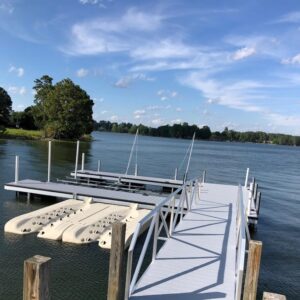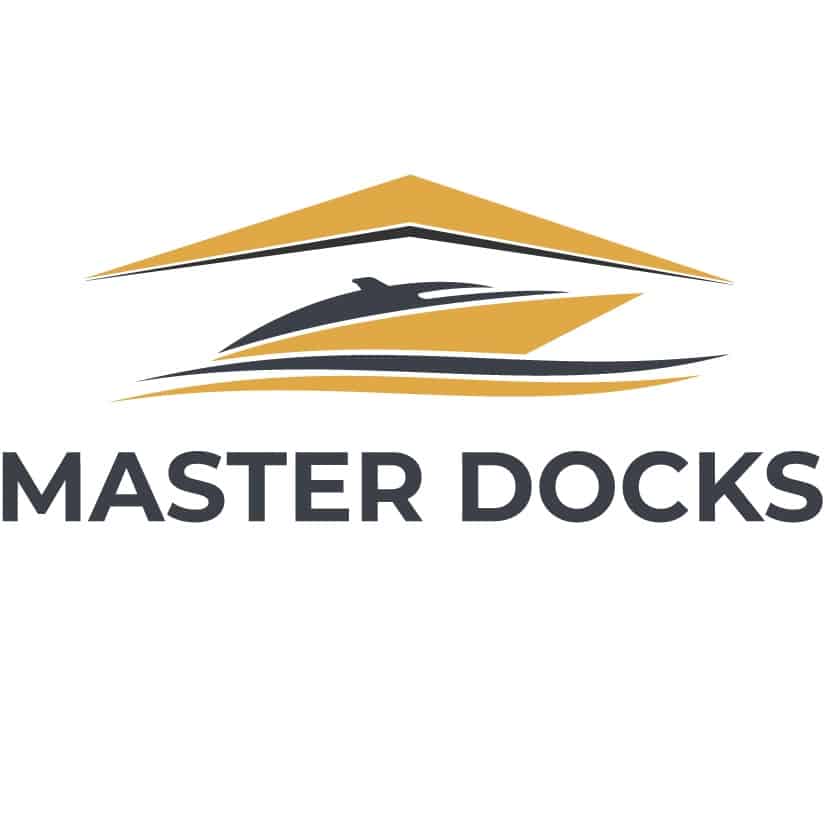
What is boat dock Insurance?
The price of floating docks ranges from $5,000 to $200,000, with permanent pier dock costs as high as $500,000. Requiring such a hefty investment, these items are more than worth protecting, yet they’re typically not covered under general home insurance policies. You may have the option to add this form of coverage to your homeowner’s policy if you have a dock on your property. If added, this coverage can protect your dock in the event it is damaged or destroyed.
Do I really need insurance for my fixed pier or floating dock?
Without boat dock coverage, you would be responsible for paying the costs of repairing or replacing your dock if damaged.
The questions you need to ask yourself:
- Can I afford the repairs needed when there is significant damage to my dock?
- At my lake or river what are the hazards my boat dock is exposed to? Think about things like:
o Freezing and thawing could crack your floats, or push up the dock, or the ice damming could crush your dock.
o Hail damage.
o Hi winds, most boat docks are built to withstand 115 mph winds. What is the chance that a hi wind episode would tear off your roof, flip the dock over, or break it loose? Boat docks with a roof structure catch more wind than platform docks which would have less damage potential.
o Heavy rain and flooding – How much can your water level fluctuate? Is your dock capable of withstanding floods? With fixed piers the water pressure from the flood can push the dock up out of the ground. Floating Boat Docks could break loose and float down the lake.
o Heavy snow can damage the roof on your boat dock. Snow is very heavy and can add thousands of pounds to your structure. If you have a floating boat dock that weight can exceed the buoyancy of the floats and therefore make your dock dip under or even sink.
o Docks are typically expensive which draws out scrupulous people who might want to steal your dock or dock accessories. It is not unheard off that a floating boat dock is disconnected and floated off to another location to be sold again as a used dock.
o A tree could fall on your boat dock. Lake Management has an objective to prevent erosion and to protect and stabilize the shoreline. So typically, you are not allowed to remove trees. Therefore, if trees are close to the dock there might be a chance they will fall onto your boat dock, either from disease or a storm.
o Lightning, it seems bodies of water attract lightning and a direct hit could cause significant damage to your dock and its electronics.
o Other boaters – Are you in a high traffic area with boats making lots of wakes? What if those boats run into your dock? Or the wave action causes damage to your boat dock?
Does homeowners insurance cover boat docks?
If your dock is located directly on your property, it is likely covered under your homeowner’s insurance policy. However, if you own a removable dock, your insurance company might consider it to be personal property that does not qualify for protection under your Other Structures coverage. To cover your boat dock, you can add it to your homeowner’s policy through the “Other Structures” coverage feature. This coverage protects your property’s structures separated from the primary residence.
Keep in mind that for your home insurance policy to cover damage to your dock, it must be on your own property. Your homeowner’s policy doesn’t cover a boat dock you rent at a marina or that’s on someone else’s property. It’s typically the property owner’s responsibility to insure those docks.
Qualifying properties are detached garages, guest homes, in-ground swimming pools, Sheds, greenhouses, driveways, gazebos, barns, and fences.
However, if your pier or floating boat dock can be removed seasonally, it may be considered personal property, which means it’s protected by your personal property coverage instead. Your personal property coverage protects your possessions, including furniture, clothing, electronics, jewelry, recreational gear, and more, when they’re damaged by fire, theft, vandalism, and other covered perils.
What damage is excluded from my boat dock policy?
Most standard homeowners’ policies typically excludes physical dock damage resulting from:
- Freezing, thawing or pressure from the water the dock is situated on.
- The collapse of the dock itself was not caused by another object falling onto it.
- Collapse from the weight or pressure of snow, water, or ice accumulated on or around the dock.
- High winds and related damage from waves.
- Flooding or Hurricanes are not covered, and you will need to look into getting separate flood insurance.
- Lack of maintenance
- Animal Damage or insect infestation
- Settling of foundation or pier.
Consult with your insurance agent to learn more about when you are and are not covered under your dock insurance policy.
For residential properties, getting a boat dock is a straightforward process. You can add a boat dock to your homeowner’s policy if the structure resides within the premises of your primary residence.
As you investigate boat dock insurance options, make sure to make a list of what you want to have covered and understand what’s included in and excluded from the coverage. Be sure to ask about these limitations so you know what kind of protection is offered.
Does flood insurance cover boat docks?
If a flood damages your boat dock, chances are it won’t be covered by your flood insurance if you purchased a policy from the National Flood Insurance Program (NFIP). The NFIP considers boat docks to be detached structures, which its flood insurance policies do not cover. The same is true for most private flood insurance. It doesn’t cover boat docks either, albeit for different reasons than the NFIP.
The National Flood Insurance Program policy, which provides coverage for U.S. homeowners, typically doesn’t cover the following:
- Docks and bridges
- Piers and bulkheads
- Seawalls and wharves
- Retaining walls and fences
What are some other ways I can protect my boat dock?
Since not all damages are covered under each insurance program it’s wise to take several other steps to help protect your boat dock.
- Add motion-activated lighting to improve dock visibility and help prevent nighttime injuries or collisions.
- Install dock bumpers to reduce the pressure of boats or other watercraft pushing against your dock, especially in windy or stormy conditions.
- Install a boat lift to keep the boat from slamming into the dock.
- Clear your dock from snow and ice to avoid the weight of accumulation.
- Clean and stain your dock regularly to reduce wood rot.
- Pull your floating boat dock or boat lift out of the water and store it when volatile weather is in the forecast.
- Regular pest control service.
- Regular dock inspections to repair potential hazards or failures.
Make sure to get your dock ready for a major storm.
How much does boat dock insurance cover?
There is generally a maximum of 10% of your home’s dwelling coverage limit applied to Other Structures insurance. This means that your insurance provider will pay a maximum of 10% of your home’s value to rebuild your Other Structures considering current construction, materials, and labor costs. For example, if your primary residence is insured at a value of $500,000, Other Structures coverage will have a maximum spend of $50,000. Increasing the maximum spend for your Other Structures policy will increase the premium you pay for your insurance package.
Boat dock insurance makes sense
Dock insurance coverage will vary from insurance company to insurance company, so check with your agent to understand the ins and outs of your policy’s available additional coverage. No matter where you get your boat dock insurance, be sure you understand what your policy covers and what it doesn’t so you’re not surprised if you must file a claim.
Here are some other references that discuss boat dock insurance:

